Vocabulary for ESL Students: Color Words Activities
July 15, 2024
Vocabulary is the foundation for all ESL learners, allowing them to develop better comprehension and communication in a new language. Color words are among the first things taught to beginners, allowing them to start describing the world around them. With ESL students of all ages, and especially children, it is crucial to offer them tasks that make learning more fun and interactive.
In this article, we review ideas and activities for easy and successful color vocabulary acquisition.

Tips for Successful Learning
2. Use Hands-On Activities: Creating experiences where young ESL students can physically touch objects of different colors can make learning more tangible and memorable.
- Flashcards. Create bright flashcards with a picture of an object of a certain color, then have the color word on the back. Make it a matching game for more fun!
- Color Scavenger Hunt. Children can look for objects of certain colors around the house or the classroom.
- Role Playing Games. Set up role playing scenes that incorporate the color vocabulary. Ex. children can pretend to be shopping at a grocery store and only be able to purchase items that are the color green.
2. Incorporate Fun Online Resources: Using online videos and interactive worksheets can make learning more exciting. Catchy songs, animated characters and critical thinking practice within vocabulary work can help deepen the learning, especially for ESL students.
Let’s have a look at some educational resources we offer at Kids Academy.
Videos and Worksheets
Kids Academy has a range of videos and worksheets designed to help young ESL learners master color vocabulary.
Videos
We introduce colors in a fun and engaging way that’s interesting for young ESL learners. Each video focuses on one color and uses an appealing elephant character, bright animations, relatable examples and super simple language. The imagery in these videos help students associate each color with familiar objects.
1. Green: Introduces the color green using the topic of spring and nature. The merry visuals and help students remember and recognize this color as the cheeful elephant and leprechaun are adding color to the scenery.
2. Yellow: Kids will learn about the color yellow while spending a nice summer day with Eddie the elephant. Watch on to find all kinds of things yellow!
Watch our whole video compilation on color words, featuring colors blue, red, yellow, green and orange!
Worksheets
These resources are designed to make learning colors an enjoyable and rewarding experience for young ESL students.
- Red and Blue Coloring Fun: This worksheet invites students to color fish in a fish bowl. Most children can identify things that are certain colors, but are not able to actually read the color words. WIth this activity, students can have fun identifying what colors they will need to color each fish to create a colorful fish bowl!
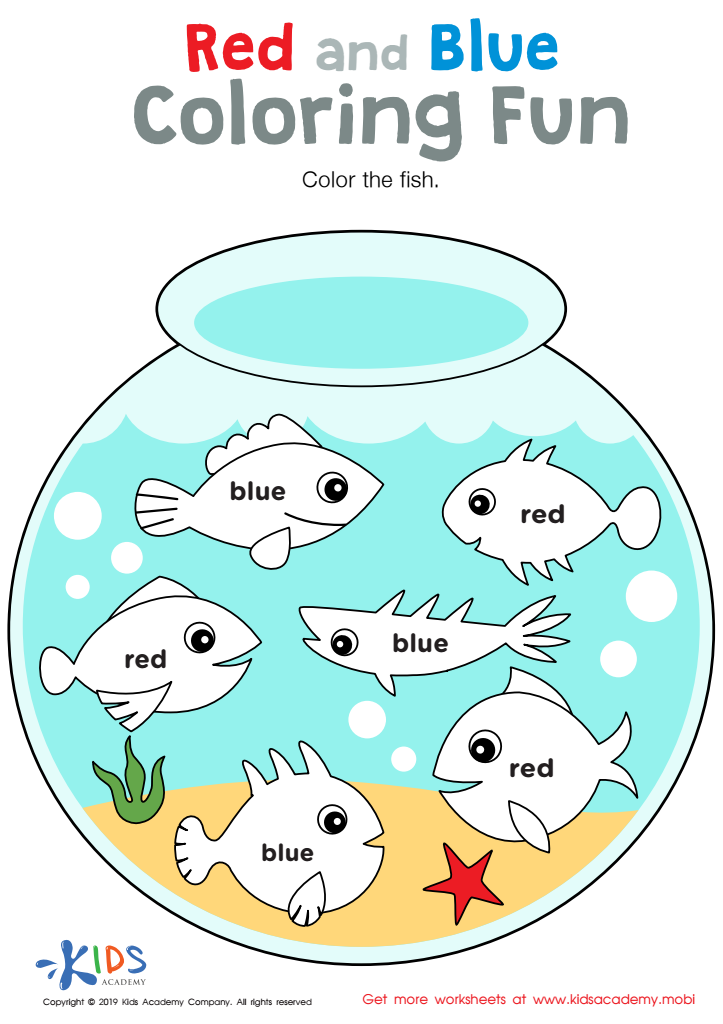
Click on the worksheet to download it! - Yellow and Green Coloring Fun: Similar to the above, this worksheet focuses on the colors yellow and green. Students will read what color they need to use to create a beautiful bouquet of flowers focusing on the colors yellow and green. As an extension activity children could draw their own bouquet and label the colors on their own. Practicing their vocabulary further.
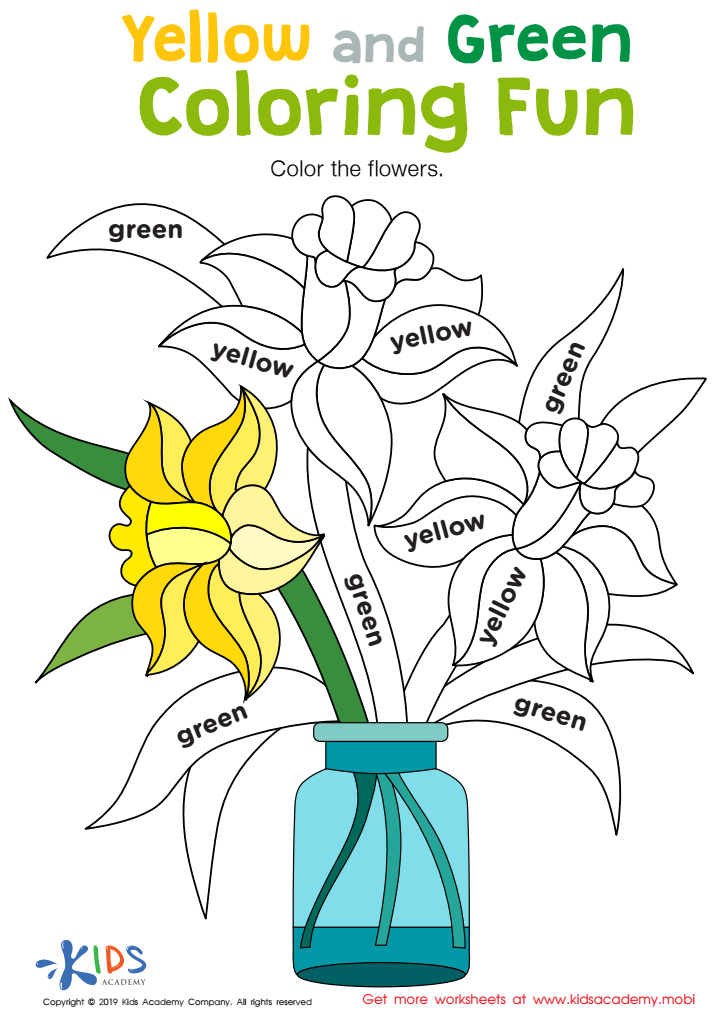
Click on the worksheet to download it! - Handwriting Color Words - Red: This worksheet helps students practice writing the word 'red', combining handwriting skills with color learning.
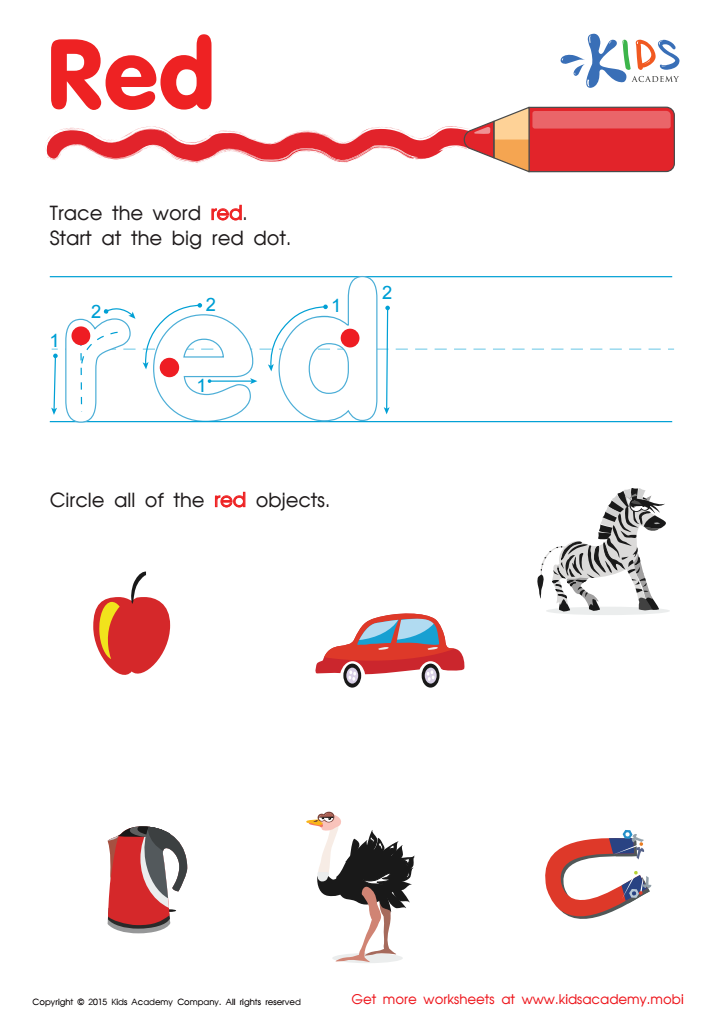
Click on the worksheet to download it or complete online! - Handwriting Color Words - Blue: This worksheet helps students practice writing the word 'blue', reinforcing their color vocabulary and handwriting skills.
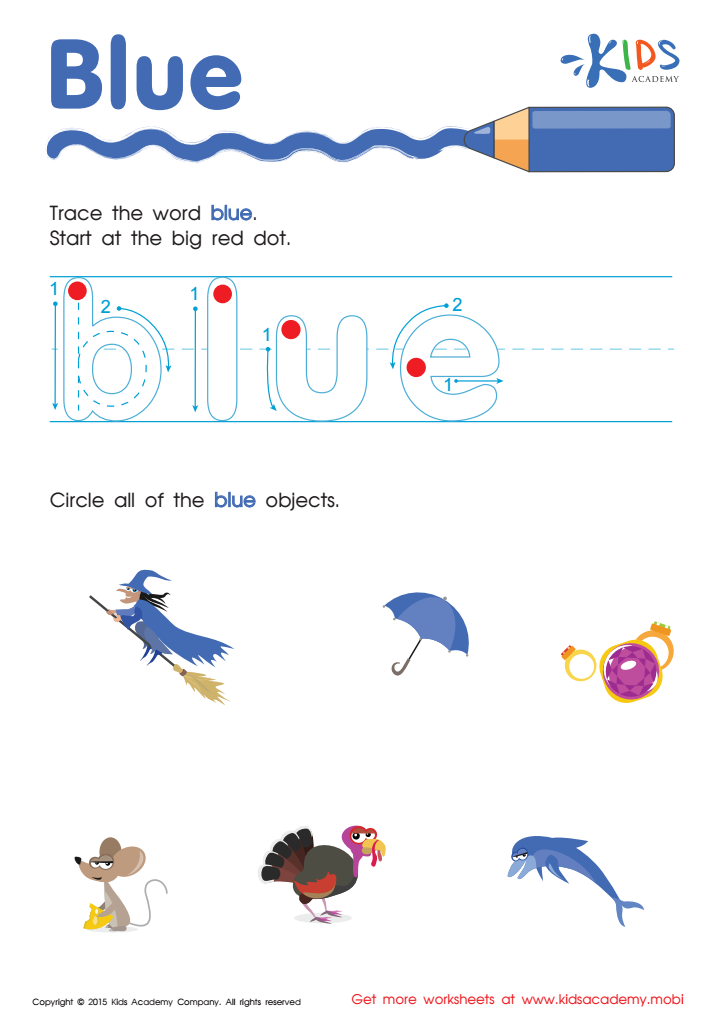
Click on the worksheet to download it or complete online! - Colors Assessment 1, Colors Assessment 2: These two assessment activities will help students to review and recap all the major color words.
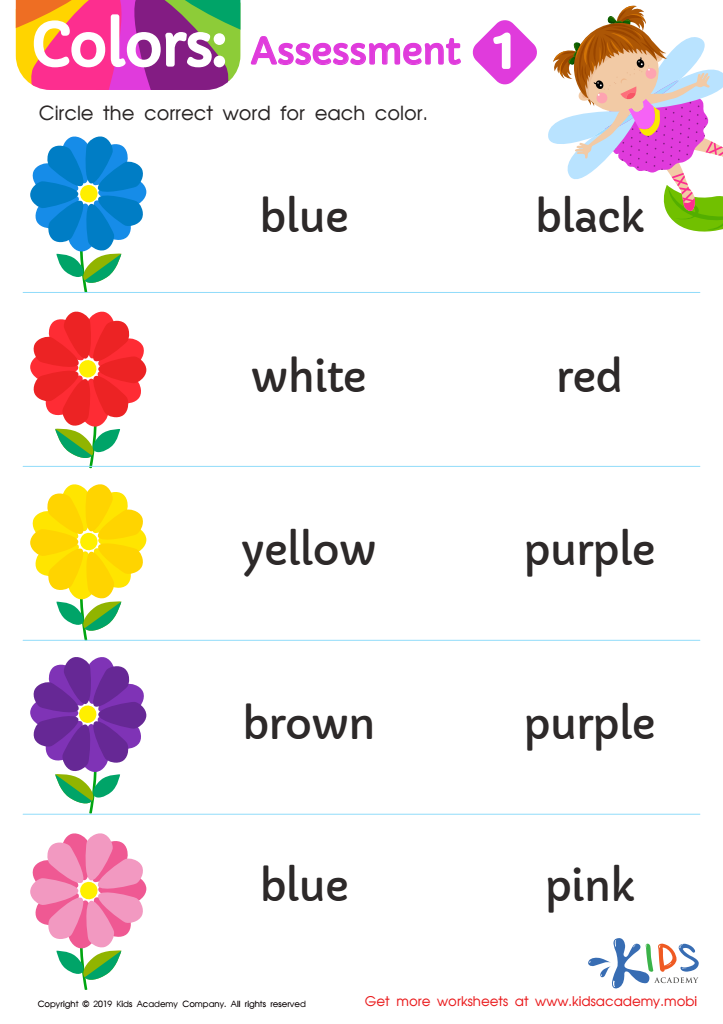
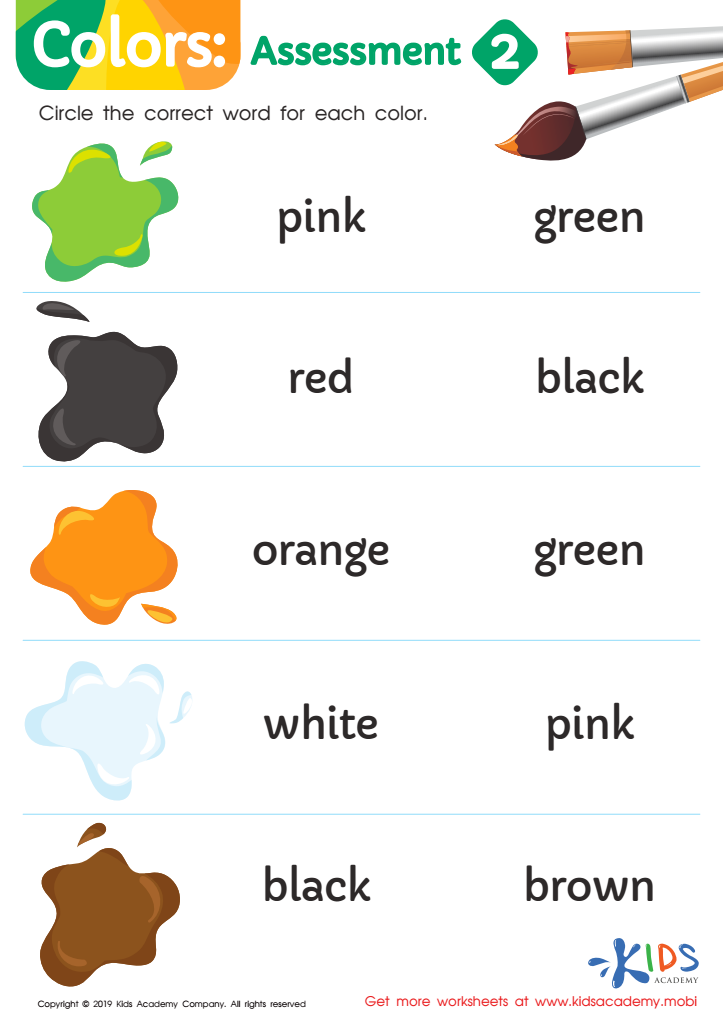
For more ESL worksheets visit our English for Beginners website section. Here you will find a lot of printables to help enhance young EFL learners' experience.
Vocabulary with Kids Academy Classroom
To make learning even more fun, Kids Academy has a Classroom feature. Parents and teachers can create a classroom with diverse activities from our online Resource Library and share it with their kids (see an example below). It can be very helpful in creating a structured learning space where you can tailor activities to each child and track their progress.
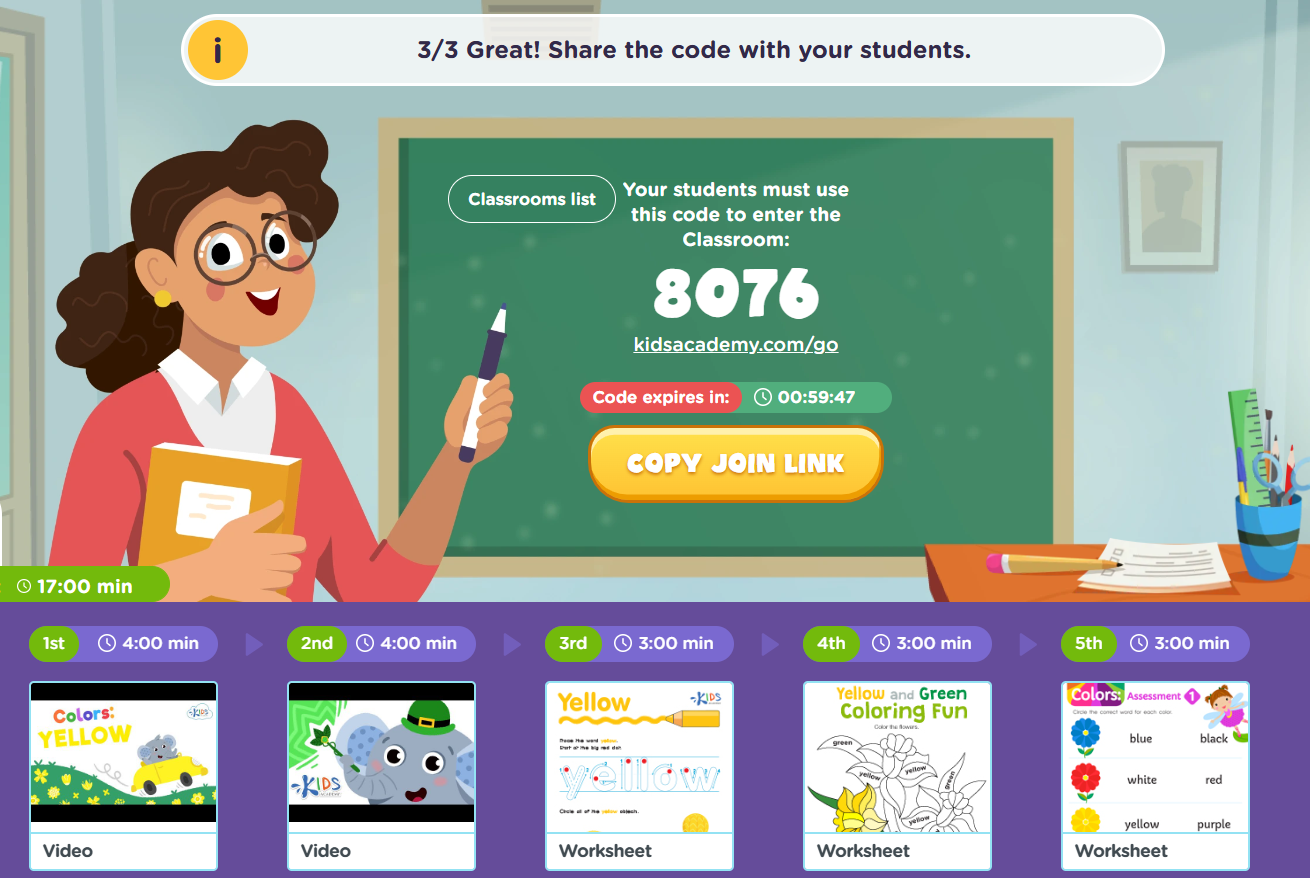
While it can be overwhelming for parents, educators, and ESL students when learning new vocabulary, using a variety of strategies and resources can help enhance the necessary retention of vocabulary. Thus creating the much needed foundation for further learning!












